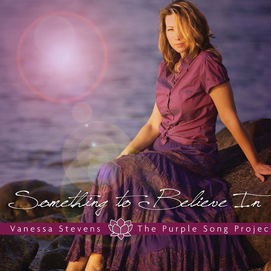|
By Vanessa Stevens, See the Triumph Guest Blogger Our teen years are a time of experimenting, learning about ourselves and how we relate to others. Whether or not you’ve been in an abusive relationship, it’s wise to enter every relationship with caution. It’s smart, actually. According to statistics, teens between the ages of 16 to 24 are the most common demographic to experience dating violence. This month – designated nationally as Teen Dating Violence Awareness Month—we at See the Triumph are focusing on 4 weeks, 4 important messages on dating. Here’s a list of do’s and don’ts to remember before and during dating: · Do teach people how to treat you. Sophia Nelson, author of The Woman Code says you teach people how to treat you based on what you tolerate or don’t. If you love yourself, set and enforce boundaries, you won’t stand for treatment that doesn’t feel right. · Do identify and honor your needs. Why do you want a relationship? Are your friends each involved with someone? Do you want to fit in with a particular clique that the guy or girl you like is part of? Is it because you don’t want to feel lonely on a weekend? Are you willing to balance studying, homework, extracurricular activities, and/or a part-time job with time dating? · Don’t be like Bella. JThe movies and book were entertaining, but Twilight is not the model for a healthy relationship. There was stalking, manipulation and isolation from Bella’s friends, family and her interests. Bella became so obsessed with Edward, her love interest, that she eventually gave up her future to be with him, and to change who she was entirely! Sure, some married couples met in high school or college, but our teen years are a time for exploring our independence. · Do love yourself first. I wish I could tell you this is easy to do! You’re at the time when you are learning to accept your skills, your physical appearance, and how to fit in with peers and the world around you. Loving ourselves seems the last thing we do when we are under our own constant scrutiny. For tips to love yourself, refer back to the Self Care series. · Don’t be so available. Though it’s tempting to want to spend a lot of time with a new crush, your own life and schedule shouldn’t change or be put on hold. Trust is important—very important—and takes time to develop. One of the warning signs is a rushing to get serious. Healthy relationships honor time to get to know one another. Let the phone go to voice mail, don’t rush to return a text or email, order what you want on your side of the pizza, for example. (These can also be tests: Does he/she text you back angrily when you don’t respond right away?) Does he/she seem overly jealous or possessive? Are you ordering what he/she wants on the pizza, or is there a compromise?) · Don’t date your abuser all over again. What do I mean by this? When we meet someone we just seem to “click” with, we may unconsciously feel hope at the chance to confront past pain, to finally heal. This person may have traits that remind us of our abusive parent or past relationship. Chances are we will go down the same dead-end road of being abused again. The only way to heal is to attract positive, healthy people in your life. Beginning a new relationship is exciting. A survivor’s biggest fear is that they’ll be abused by someone else. Follow these tips but most importantly trust yourself. Listen to your gut and your intuition. If something feels wrong, or strange or weird, it could be a sign of an unhealthy relationship. After several abusive relationships in both high school and college, I remember thinking I would always attract abusers or that every new boyfriend would abuse me. Today, I know that’s not the case. I am married to a healthy, respectful and trustworthy man and the relationships I keep around me are healthy. It took years of learning to recognize abuse, then lowering and eliminating my tolerance of it. Take your time, get educated (see the sites below for more), and know that everyone deserves respect, trust, and real (healthy) love. Some books and resources to help define healthy dating:
Or, contact your local domestic violence or women’s resource center.  The Purple Song Project: It is possible to thrive. Offering survivors of domestic violence hope, healing and awareness… through songs! Founder Vanessa Stevens is on a mission to identify what helps survivors really, truly move on after trauma and explores the ways music and art can help others heal. She has presented to teens on college campuses about preventing abuse. She also is a freelance article writer (online and off) and produces theme songs for businesses, non-profits and films. Purple song.com, twitter (@Van Stevens) or follow the project on Facebook. Comments are closed.
|
Archives
July 2024
CategoriesAll About Intimate Partner Violence About Intimate Partner Violence Advocacy Ambassadors Children Churches College Campuses Cultural Issues Domestic Violence Awareness Month Financial Recovery How To Help A Friend Human Rights Human-rights Immigrants International Media Overcoming Past Abuse Overcoming-past-abuse Parenting Prevention Resources For Survivors Safe Relationships Following Abuse Schools Selfcare Self-care Sexual Assault Sexuality Social Justice Social-justice Stigma Supporting Survivors Survivor Quotes Survivor-quotes Survivor Stories Teen Dating Violence Trafficking Transformative-approaches |
Search by typing & pressing enter


 RSS Feed
RSS Feed